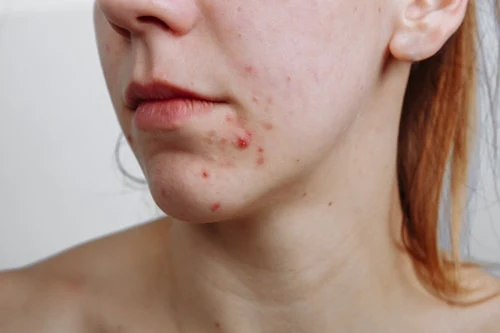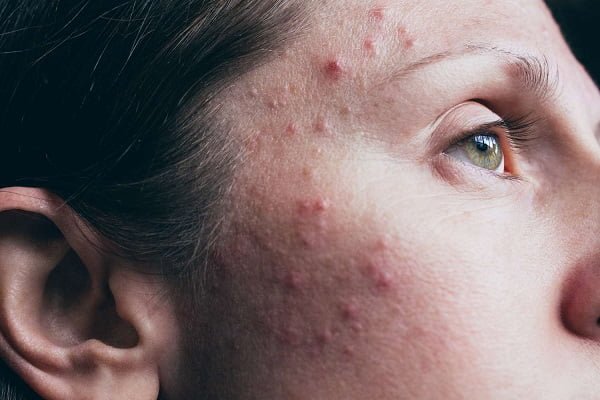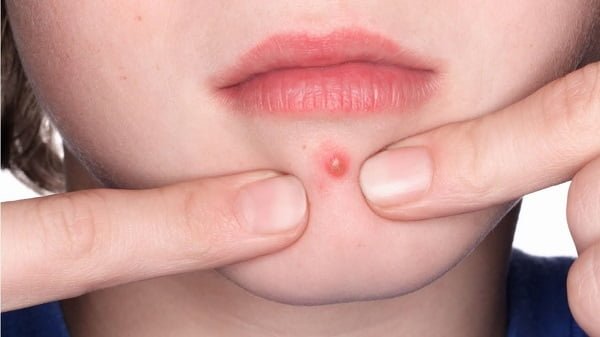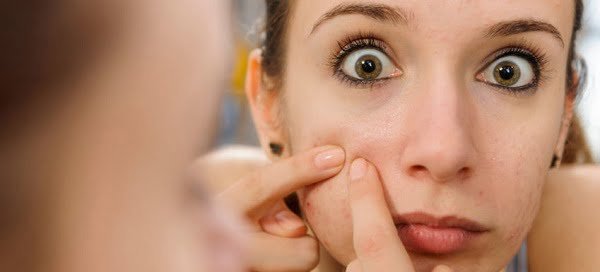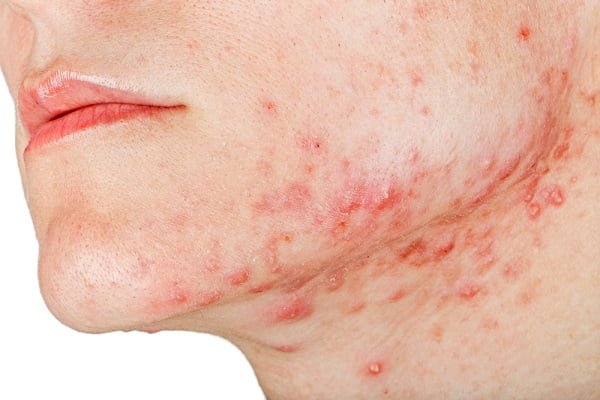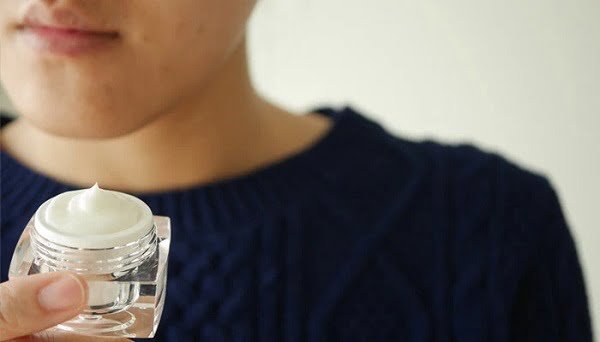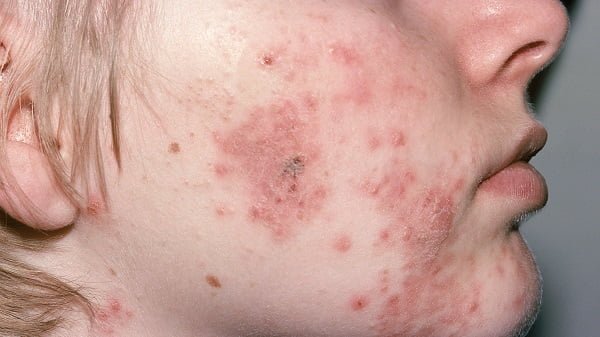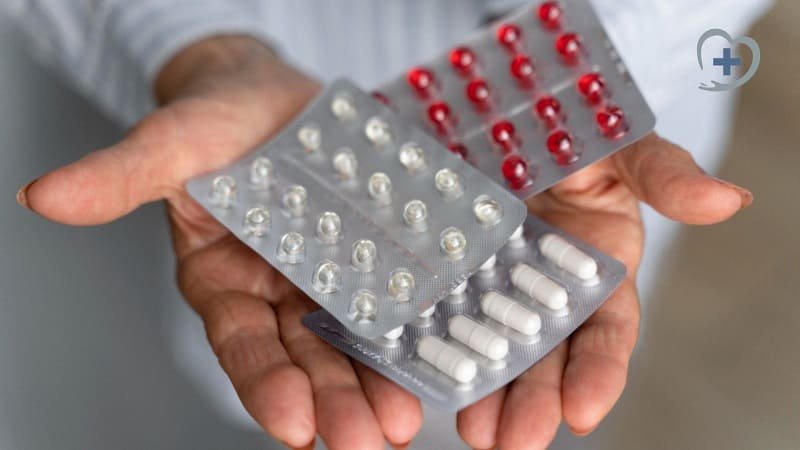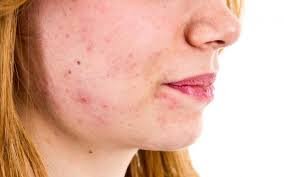Introduction
Propionibacterium acnes, commonly referred to as P. acnes, is a type of bacteria that naturally resides on the skin’s surface, particularly in the sebaceous glands and hair follicles. While it is a normal component of the skin microbiota, P. acnes can also contribute to various skin problems when its growth becomes uncontrolled. Why Am I Getting Cystic Acne All Of A Sudden? In this blog, we’ll delve into the implications of Propionibacterium acnes on skin health, exploring its role in causing skin problems and discussing preventive measures to maintain a healthy complexion.
Understanding Propionibacterium acnes:
Propionibacterium acnes is a gram-positive, anaerobic bacterium that thrives in the oily, oxygen-deprived environment of the skin’s hair follicles. It plays a crucial role in maintaining skin health by metabolizing sebum, the skin’s natural oil, and contributing to the skin’s acidic pH balance. However, when the population of P. acnes grows excessively, it can lead to various skin problems due to inflammation and infection.
Skin Problems Caused by Propionibacterium acnes:
Acne: One of the most well-known skin problems associated with Propionibacterium acnes is acne. P. acnes colonizes the hair follicles and triggers inflammation, leading to the formation of acne lesions such as pimples, blackheads, whiteheads, cysts, and nodules. The presence of P. acnes contributes to the inflammatory response seen in acne breakouts.
Folliculitis: Propionibacterium acnes can also cause folliculitis, a condition characterized by inflammation of the hair follicles. When P. acnes proliferates within the hair follicles, it can lead to red, itchy bumps, and pustules, especially in areas with increased hair growth, such as the scalp, face, and chest.
Skin Infections: In some cases, Propionibacterium acnes can cause skin infections, particularly in individuals with compromised immune systems or skin barrier function. These infections may manifest as red, swollen, and tender areas of the skin, often accompanied by pus or drainage.
Post-Inflammatory Hyperpigmentation: P. acnes-induced inflammation can result in post-inflammatory hyperpigmentation, a condition characterized by darkening of the skin at the site of previous acne lesions. This discoloration occurs due to an overproduction of melanin in response to inflammation and can persist long after the acne has resolved.
Causes of Propionibacterium acnes Overgrowth:
Excess Sebum Production: Excessive production of sebum provides an ideal environment for Propionibacterium acnes to thrive, leading to its overgrowth and colonization of the hair follicles.
Hormonal Changes: Hormonal fluctuations, particularly during puberty, menstruation, pregnancy, and menopause, can stimulate the sebaceous glands to produce more oil, contributing to the proliferation of P. acnes.
Poor Skincare Practices: Inadequate cleansing, improper use of skincare products, and failure to remove makeup thoroughly can allow P. acnes to accumulate on the skin’s surface, leading to overgrowth and potential skin problems.
Diet: Certain dietary factors, such as consuming high-glycemic foods and dairy products, have been linked to acne development and may indirectly contribute to Propionibacterium acnes overgrowth.
Preventive Measures for Maintaining Skin Health:
Proper Hygiene: Maintain good hygiene practices by cleansing the skin regularly with a gentle cleanser to remove excess oil, dirt, and bacteria, helping to prevent Propionibacterium acnes overgrowth.
Balanced Diet: Adopt a balanced diet rich in fruits, vegetables, whole grains, and lean proteins while minimizing consumption of sugary, processed foods and dairy products that may exacerbate acne and contribute to bacterial overgrowth.
Skincare Routine: Establish a consistent skincare routine using non-comedogenic products suitable for your skin type to help regulate oil production, prevent pore clogging, and maintain a healthy skin microbiome.
Stress Management: Manage stress through relaxation techniques such as meditation, yoga, or deep breathing exercises, as stress can exacerbate acne and contribute to Propionibacterium acnes overgrowth.
Conclusion
Propionibacterium acnes, while a natural inhabitant of the skin, can contribute to various skin problems when its growth becomes uncontrolled. By understanding the implications of P. acnes on skin health and adopting preventive measures, individuals can maintain a healthy complexion and minimize the risk of developing acne and other related skin issues. Consistency in skincare practices, dietary choices, and stress management can go a long way in promoting skin health and overall well-being.
Faq related to "What skin problem can Propionibacterium acnes cause"
Propionibacterium acnes, commonly known as P. acnes, is a gram-positive, anaerobic bacterium that naturally resides on the skin’s surface, particularly in the sebaceous glands and hair follicles. It plays a crucial role in maintaining skin health by metabolizing sebum and contributing to the skin’s acidic pH balance.
Propionibacterium acnes can contribute to various skin problems, including acne, folliculitis, skin infections, and post-inflammatory hyperpigmentation. Its overgrowth and colonization of the hair follicles can trigger inflammation, leading to the formation of acne lesions such as pimples, blackheads, whiteheads, cysts, and nodules.
Several factors can contribute to Propionibacterium acnes overgrowth, including excess sebum production, hormonal changes, poor skincare practices, and dietary factors. Excessive sebum provides an ideal environment for P. acnes to thrive, while hormonal fluctuations during puberty, menstruation, pregnancy, and menopause can stimulate oil production and bacterial proliferation.
Preventive measures for maintaining skin health and minimizing Propionibacterium acnes overgrowth include proper hygiene practices, balanced diet, skincare routine, and stress management. Regular cleansing with a gentle cleanser, adopting a balanced diet rich in fruits and vegetables, using non-comedogenic skincare products, and managing stress levels can help prevent acne breakouts and other skin issues.
Yes, Propionibacterium acnes infections, such as acne and folliculitis, can be treated using various approaches depending on the severity of the condition. Treatment options may include over-the-counter medications, prescription topical treatments, oral antibiotics, hormonal therapy, and in-office procedures performed by dermatologists.
In some cases, Propionibacterium acnes overgrowth and associated skin problems, such as acne and post-inflammatory hyperpigmentation, may lead to long-term consequences such as scarring and persistent skin discoloration. It’s essential to address P. acnes overgrowth promptly and effectively to minimize the risk of these complications.
While Propionibacterium acnes primarily affects the skin, its overgrowth and colonization may be associated with other health conditions such as inflammatory bowel disease (IBD) and rheumatoid arthritis (RA). However, further research is needed to understand the potential links between P. acnes and systemic health conditions fully.
If you’re experiencing persistent acne breakouts, folliculitis, or other skin issues, it’s essential to consult a dermatologist for an accurate diagnosis and appropriate treatment. Dermatologists can assess your skin condition, perform tests if necessary, and recommend personalized treatment options tailored to your specific needs.

